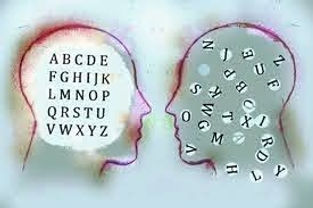

Screening Tools
Screening tools are just that, a tool to help start talking points for the provider and you to figure out what is going on and the best approach to help soften or correct your symptoms. Many online screening tools exist but without the interview or interpretation from your provider, you are likely to get a false positive screen. Many conditions (like ADHD) can share similar symptoms which requires a skilled provider to rule out narrow down the likely cause of the symptoms. Once that is done, then a treatment plan can be determined. Bottom line: one screen or brief interview will not likely diagnose your condition.

Click on photo for PDF link.
ACES
Acute childhood early events impact an individual's mood and temperament in their life. It helps the clinician know how chaotic early childhood was and how it contributes to their current mood.
ASRS
This is a screening tool that helps an individual describe the degree of current problems with focus, concentration, hyperactivity, and impatience to their provider.
Reading/Irlen Screen
These screens help evaluate the shifts in focus and visual clarity in an individual while reading. Some individuals avoid reading because they find they can't concentrate or they get visually fatigued. This short test will help identify if their are connection issues between the eye and the brain and may highlight if a specialist consult is necessary.
Workplace Stress Screen
Any situation that subjects a person to big changes in life are considered stressful. Stress often originates from the feeling that the individual has limited control over life. Often it results in deteriorating physical and mental health. When left unmanaged it can shorten a person's life and lead to chronic illness/disease.
Dr. Amen's ADHD-Type Screen
Developed by Dr. Amen as one tool for evaluating individuals having trouble focusing, difficulty with follow through, disorganization, or distraction to evaluate for possible Attention Deficit Disorder (ADD) or Attention Deficit Hyperactivity Disorder (ADHD). This simple, confidential 4-minute test points for signs of possible Attention Deficit Disorder. Created by the Amen Clinics, it can identify 7 unique ADD types that may be causing difficulty in all aspects of your life.
YBOCS-Obsessive Traits Screen
Do you have repetitive thoughts or behaviors about the imperfections on your body? Does this cause you destress or affect your relationships? Do you find yourself feeling uncomfortable in most social circumstances comparing yourself to others? If so, taking this screen and discussing with your provider may help provide insight into ways to treat you therapeutically.
Adult Learning Challenges/Dyslexia Symptoms
Many adults have learning issues that were never undetected. It can cause a dislike for reading, misunderstanding what is read, not seeing words in a paragraph, reading words in a different order, eye fatigue, headaches, or ADHD like symptoms. This Adult Reading History Questionnaire (ARHQ) is a self-report screening tool designed to measure risk of reading disability (i.e. dyslexia) in adults (Lefly & Pennington, 2000). The ARHQ asks adults about their own reading history and current reading habits in order to estimate the risk that they may have a reading disability.
Mood Shifts/BSDS
This screen helps describe the shifts in moods and energy an individual is impacted with in their life. We all have ups and downs and with that our energy will fluctuate. This gets a sense of how strong the ups and downs are and what the quality of the energy is like with the mood shifts. It is a tool to be interpreted by a clinician.
NEW! Brain Injury screening Tool
The Brain Injury Screening Questionnaire (BISQ) was developed with the goal of creating a TBI screening tool that could be used to document lifetime history of self-reported TBI and the presence of current symptoms, if any, as well as to rule out alternative explanations for reported symptoms (eg, other neurological or developmental conditions).
Highly Sensitive Person Screen
Do you struggle with the intensity of your emotions? Are sudden sounds, bright lights, loud voices, or surprises causing you anxiety and emotional upheaval? Do you struggle with tastes, textures, smells, and sights of foods? Do you find that it is hard to "get over" your intense feelings or responses even if you think they are "ridiculous"? Perhaps you are a highly sensitive individual. Understanding this can help you and your provider learn to manage your emotions, reactions, and sense of overwhelm.
Sensory Processing Issues
This is a screen that is often used with assessing a person's reaction to their environment. Some people are described as extremely sensitive or under sensitive. These individuals may have reactive behavior or difficulty adjusting in life to changing circumstances. This can help the provider determine how to stabilize their mood.
Autism Quotient Symptom Initial Screen
This is a preliminary screen that may suggest why a client is struggling to manage their communication, relationships, and work. It helps the provider start a conversation with the client to determine if more comprehensive assessment for Autism should be sought out. Symptoms of a screen do not diagnose autism but may help identify appropriate referrals to specialists.
Borderline Traits Screen
Borderline Personality Traits often occur as a result of severe trauma or repeated traumatic exposures. Persons often feel highly sensitive, suspicious, and extremely reactive, to situations. They tend to view their world as good-bad, black-white, or positive-negative. Relationships are a struggle as their mood swings are inflammatory. They tend to attach and detach quickly making sustained healthy relationships difficult. Identifying these traits can help the individual and therapist target ways to manage it. DBT skills is often very helpful.
Love Addiction Questionnaire
Love addiction is characterized by compulsively seeking romance despite the emotional, social, physical, or financial consequences. Like other addicts, there is a component of codependency in love addiction. Some love addicts get caught in toxic relationships and become codependent on their loved ones.
Alcohol Use disorder screen (AUDIT)
The AUDIT or Alcohol Use Disorders Identification Test is a 10-question screening tool developed by the World Health Organization to assess alcohol consumption, behaviors, and problems associated with alcohol use. American Addiction Centers offers free and confidential guidance to those suffering from addiction.
Sexual Addiction Screening Tool (SAST)
The Sexual Addiction Screening Test (SAST) is designed to assist in the assessment of sexually compulsive or "addictive" behavior. Developed in cooperation with hospitals, treatment programs, private therapists and community groups, the SAST provides a profile of responses which help to discriminate between addictive and non-addictive behavior.























